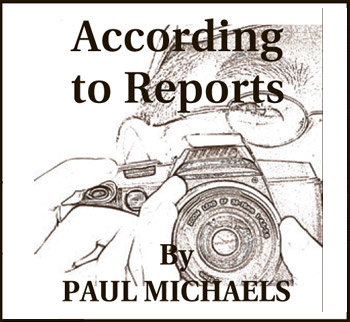In response to the horrific murder of three Jewish children and a rabbi earlier this month at a Jewish school in Toulouse, France, Eli Wiesel asked: “Will the hatred of the Jews ever finally vanish? Will Jewish children always be in danger?”
He observed: “When a blood-thirsty Jew-hater wants to kill Jews, he goes first to the Jewish schools. Jewish children are his primary target.”
Yet speaking of the old, well-established and “dynamic” Jewish community of that city, Wiesel added: “In the streets, you can see Jews wearing yarmulkes. Nobody thinks of antisemitism. Spiritually, it is one of the richest Jewish communities in France.”
Others, however, paint a somewhat different picture – describing Jews who are afraid to wear yarmulkes publicly.
Jean-Yves Camus of the Institute of International and Strategic Relations in France noted (in Ha’aretz on March 20) that “although the Toulouse killings are the most dramatic and deadly anti-Jewish action for decades, they are only the most shocking among the 400 antisemitic incidents that are recorded every year by the community’s protection service, the SPCJ. Since the beginning of the second intifadah in 2000, the level of antisemitic attacks has been rising, with a peak of more than 900 in 2004. And regardless of the real efforts of the French government, police and justice authorities, the level of attacks remains much higher than in the 1990s.”
The rise in antisemitism has been noted in a report by the Anti-Defamation League that was (coincidentally) released on March 20 and picked up by some major media outlets, including Reuters. According to the study, “pernicious antisemitic beliefs continue to be held [overall] by nearly one-third of those surveyed” – with levels up in nine of 10 European countries surveyed.
Nearly a quarter of French citizens hold antisemitic attitudes, an increase of 20 per cent since 2009. This compares with 63 per cent of Hungarians, 53 per cent of Spaniards, and 48 per cent of Poles. The lowest numbers in the study were found in Britain (17 per cent) and Germany (21 per cent). Indicators included whether respondents believe Jews have too much power in business, are more loyal to Israel than to their own country, or “talk too much” about the Holocaust.
“The survey is disturbing by the fact that antisemitism remains at high levels across the continent and infects many Europeans at a much higher level than we see here in the United States,” warned Abraham Foxman of the ADL.
In the March 21 Globe and Mail, reporting from Toulouse, Doug Saunders observed that in response to threats from the far-right in France, the Jewish community had taken all sorts of security measures at the school, including security guards, iron gates, high walls and video surveillance. Sadly, no measure provides total protection against a determined killer.
Saunders is right to point out Jew-hatred from the radical right, which also directs hatred toward Muslim immigrants. But as the Toulouse murders demonstrate, Jew-hatred from Muslim extremists is also a serious concern.
Antisemitism is spread not just by the violent ideology at the core of Jihadi organizations such as Al Qaeda, Hamas, and Islamic Jihad, but also among elements in even “moderate” Muslim states like Turkey.
As the Times of Israel reported last week: “In an unprecedented move, a bipartisan U.S. commission tracking global religious freedom has recommended that the State Department name Turkey on its annual list of ‘countries of particular concern.’ It marks the first time a NATO ally has been designated as a nation whose government has engaged in, or tolerated, systematic and egregious violations of the universal right to freedom of religion and belief… The commission also calls out Turkey – along with Saudi Arabia, Iran, and Venezuela – for its promotion and tolerance of antisemitism.”
As last week’s events confirm, antisemitism can rear its ugly head in any society – from advanced democracies to theocratic dictatorships. The need for a Jewish national home in Israel, as a beacon of hope and a guarantor of security for Jews everywhere, is as real today as it was in 1948.
Paul Michaels is director of research and media relations for the Centre for Israel and Jewish Affairs.
This column appears in the March 29 print issue of The CJN
